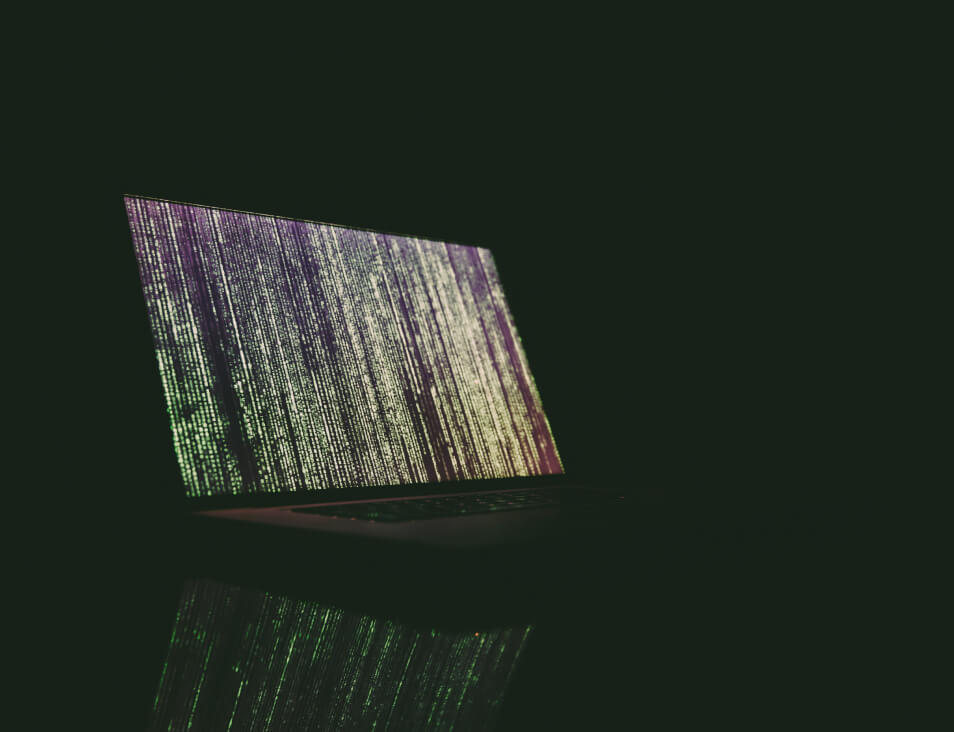In a ground-breaking move, the UK has introduced new arbitration rules designed to resolve commercial disputes involving novel technologies like smart contracts, cryptoassets and distributed ledger technology. In this piece, we discuss some of the cutting edge features of the new rules and the importance of a dispute resolution mechanism for digital technologies.
In a pioneering move, the UK has introduced the new Digital Dispute Resolution Rules (UK Rules) to resolve digital disputes involving novel technologies like cryptoassets, smart contracts and distributed ledger technology.[1] At a time when individuals and businesses are increasingly capitalizing on blockchain-based solutions, a dispute resolution mechanism to address blockchain related disputes is the need of the hour. The rules offer a forward-looking and innovative approach to resolving digital disputes that is quick, flexible and cost-effective. These rules have been introduced in the wake of the (government-backed) UK Jurisdiction Taskforce’s recognition of cryptoassets as property under English Law and smart contracts as valid and enforceable,[2] – a view subsequently endorsed by the High Court of England and Wales.[3] We discuss some of the key features of the rules below:
Scope
The UK Rules apply only to digital asset systems. The rules define a digital asset as a cryptoasset, digital token, smart contract or other digital or coded representation of an asset or transaction.[4] A digital asset system is the digital environment in which such digital asset exists.[5] However, the UK Rules do not apply automatically to any digital asset system. To take effect, they have to be expressly incorporated by the parties, into a contract, digital asset or a digital system, before a dispute has arisen or afterwards by agreement.[6]
Automatic dispute resolution
The UK Rules introduce a unique concept called ‘automatic dispute resolution’ or ‘on-chain’ resolution which allows an arbitrated outcome to be implemented directly by the arbitrator on a blockchain using a private key.[7] For instance, the arbitral tribunal could require an automatic payment of compensation by the losing party into the winning party’s digital wallet within a blockchain.[8] The tribunal also has the power to operate, modify, sign or cancel any digital asset relevant to the dispute using any digital signature, cryptographic key, password or other digital access made available to it.[9] The tribunal can also direct any party to undertake such an action. Any dispute resolved through automatic dispute resolution is binding on parties. However, application of automatic dispute resolution to digital assets is not mandatory under the UK Rules. The parties can modify the applicability of the rules to their dispute and choose to enforce an award through regular channels.
Arbitration procedure
The UK Rules aim to introduce a rapid arbitration procedure to avoid delays and procedural bottlenecks. While the applicable law is the law of England and Wales – the English Arbitration Act, 1996, parties and the arbitral tribunal have the flexibility to adopt any procedure that suits the dispute. Prior to the commencement of the arbitration, parties can agree upon the number of arbitrators, their technical qualifications, expert determination of any issue instead of arbitration, procedure to be adopted including the timeline for resolving the dispute and any modifications to the UK Rules.[10]
For the arbitration proceedings to commence, the claimant gives notice to the party against whom the claim is made (the respondent).[11] The respondent(s) has three days to send an initial response to the claimant’s notice.[12]Thereafter, the appointment body will appoint specialised arbitrators with the necessary technical expertise to resolve the digital dispute at hand.[13] The arbitral tribunal, comprising of a panel of specialised arbitrators, has to resolve the dispute within 30 days, unless a separate timeline has been agreed upon by the parties.[14] In conducting the arbitration, the tribunal has complete discretion to adopt any procedure it deems fit, while acting fairly and impartially, and after consulting the parties.[15] While the tribunal has to give each party a reasonable opportunity of being heard, no party has a right to an oral hearing. The tribunal can determine any dispute solely on the basis of written submissions.[16]
Anonymity
In situations where parties may have transacted anonymously on a blockchain and intend to keep their identities hidden with each other,[17] parties can anonymously resolve their dispute.[18] This must, however, be agreed by the parties in the text incorporating the UK Rules. In case of an anonymous dispute resolution, parties have to provide the details of their identity confidentially to the tribunal but need not include them in the notice of claim or the initial response.[19]However, the tribunal can disclose the identity of the parties if it is necessary for fair resolution of the dispute, for enforcement of any decision or award, for protection of the tribunal’s own interests, or if required by any law or regulation or court order.[20]
Expert determination instead of arbitration
When questions of fact are involved in a dispute, which can only be resolved with the help of experts, parties can submit such questions for expert determination instead of arbitration.[21] However, the UK Rules don’t specify any procedure for expert determination and neither are they governed by the laws of arbitration. Instead, parties have to determine how and when an expert determination should be used.[22] For instance, if there is an issue regarding a blockchain oracle determining a valuation,[23] parties can call for an expert determination.[24] In the contract between the parties, they can agree on the type of issues to be determined by expert determination and the procedure to be followed.
Enforcement of the arbitral award
Any enforcement of the arbitration award has to be in the courts of England and Wales in accordance with the English Arbitration Act, 1996. For cross-border disputes, enforcement of the award has to follow the international enforcement regime under the Convention on the Recognition and Enforcement of Foreign Arbitral Awards (New York Convention) adopted by the English Arbitration Act, 1996.
Importance of a dispute resolution mechanism for digital technologies
While blockchain technologies are designed to reduce the risk of disputes, conflict between parties cannot entirely avoided. A mechanism to resolve disputes involving digital technologies is, therefore, imperative for the following reasons:
- Smart contracts, stored on a blockchain platform, function on the basis of a code to automatically execute parts of an agreement between parties.[25] They are most commonly used for automatically executing payment transactions between parties using digital currencies. However, since these transactions are irreversible, intervention in emergency situations, through a rapid arbitration, is vital. This will also allow parties to seek emergency injunctions, and offer legal protection to their transactions. For instance, if in an ongoing transaction, a party becomes insolvent requiring the transaction to be terminated; or a coding error in a smart contract results in a buyer ordering twice the number of shares than the buyer intended, resulting in the buyer seeking a reversal of the transaction.[26]
- A smart contract is only a portion of a larger agreement between parties which may contain other performance obligations.[27] Failure to fulfil such obligations may give rise to regular contractual disputes between parties. Such disputes have to be resolved rapidly as they may have a bearing on the automated transaction under the smart contract. Conversely, even in a regular arbitration between parties involving a larger contract, a portion of the dispute may be a digital dispute involving a smart contract. Both these situations require the application of robust digital dispute resolution mechanism like the UK Rules.
- Since digital businesses engage in cross-border transactions, disputes between parties can give rise to ‘conflict of laws’ issues such as the law that should be applicable to the dispute between the parties. To counter conflict of laws issues, parties can adopt a common set of rules – the UK Rules to resolve their digital disputes, as it provides the English Arbitration Act, 1996 as the applicable law and the New York Convention as the international enforcement regime.
Way forward for India
With the onset of the pandemic, India has shown a keen interest in moving towards online dispute resolution (ODR) for commercial disputes. In the draft ODR policy plan released by the NITI Aayog, it discussed the potential of blockchain driven arbitration to automate enforceability using smart contracts.[28] This approach finds resemblance to the automatic dispute resolution under the UK Rules. Although the policy is still being formulated, adopting rules similar to the UK Rules for resolving disputes involving digital technologies will complement India’s interest in ODR. Moreover, with an increasing use of blockchain technology in India, particularly in the banking and financial services sector, Indian businesses could benefit from an efficient and flexible digital dispute resolution framework.
This piece has been authored by Kruthi Venkatesh, a consultant working with Ikigai Law, with inputs from Anirudh Rastogi (anirudh@ikigailaw.com), Managing Partner at Ikigai Law.
For more on the topic, please get in touch at contact@ikigailaw.com
Image Credits: Freepik
[1] Digital Dispute Resolution Rules, https://35z8e83m1ih83drye280o9d1-wpengine.netdna-ssl.com/wp-content/uploads/2021/04/Lawtech_DDRR_Final.pdf.
[2] UK Jurisdiction Taskforce, CryptoAssets and Smart Contracts, available at, https://35z8e83m1ih83drye280o9d1-wpengine.netdna-ssl.com/wp-content/uploads/2019/11/6.6056_JO_Cryptocurrencies_Statement_FINAL_WEB_111119-1.pdf.
[3] AA v Persons Unknown [2019] EWHC 3556 (Comm), https://www.bailii.org/ew/cases/EWHC/Comm/2019/3556.html; Ion Science Ltd v Persons Unknown and others (unreported) 21 December 2020 (Commercial Court), https://www.linklaters.com/en/insights/blogs/fintechlinks/2021/march/the-english-courts-take-a-traditional-approach-to-determining-governing-law-and-jurisdiction.
[4] Rule 2(a), Digital Dispute Resolution Rules.
[5] Rule 2(a), Digital Dispute Resolution Rules.
[6] Background, Digital Dispute Resolution Rules.
[7] Rules 2(c), Digital Dispute Resolution Rules.
[8] Freshfields, UK Jurisdiction Taskforce publishes groundbreaking Digital Dispute Resolution Rules, 23rd April, 2021, available at, https://digital.freshfields.com/post/102gwcd/uk-jurisdiction-taskforce-publishes-groundbreaking-digital-dispute-resolution-rul.
[9] Rule 11, Digital Dispute Resolution Rules.
[10] Rule 3, Digital Dispute Resolution Rules.
[11] Rule 6, Digital Dispute Resolution Rules.
[12] Rule 7, Digital Dispute Resolution Rules.
[13] Rule 2(e), Digital Dispute Resolution Rules.
[14] Rule 12, Digital Dispute Resolution Rules.
[15] Rule 9, Digital Dispute Resolution Rules.
[16] Rule 10, Digital Dispute Resolution Rules.
[17] Further Guidance, Digital Dispute Resolution Rules, supra note 1, at 13.
[18] Rule 13, Digital Dispute Resolution Rules.
[19] Rule 13, Digital Dispute Resolution Rules.
[20] Rule 13, Digital Dispute Resolution Rules.
[21] Rule 5, Digital Dispute Resolution Rules.
[22] Further Guidance, Digital Dispute Resolution Rules, supra note 1, at 11.
[23] Blockchain oracle is a third-party data feed service which provides blockchains and smart contracts with external data.
[24] Further Guidance, Digital Dispute Resolution Rules, supra note 1, at 11
[25] Stuart D. Levi and Alex B. Lipton, ‘An Introduction to Smart Contracts and Their Potential and Inherent Limitations’ Harvard Law School Forum on Corporate Governance (26 May 2018), available at, https://corpgov.law.harvard.edu/2018/05/26/an-introduction-to-smart-contracts-and-their-potential-and-inherent-limitations/#:~:text=How%20Smart%20Contracts%20Function,on%20a%20blockchain%2Dbased%20platform.
[26] World Economic Forum, Bridging the Governance Gap: Dispute Resolution for Blockchain-based Transactions, White Paper, December, 2020, at 6, available at, http://www3.weforum.org/docs/WEF_WP_Dispute_Resolution_for_Blockchain_2020.pdf (hereafter, World Economic Forum, Bridging the Governance Gap: Dispute Resolution for Blockchain-based Transactions).
[27] Pietro Ortolani, The impact of blockchain technologies and smart contracts on dispute resolution: arbitration and court litigation at the crossroads, Vol 24(2) Uniform L. Rev. 430 (2019), available at, https://academic.oup.com/ulr/article/24/2/430/5490658.
[28] NITI Aayog, titled Designing the Future of Dispute Resolution: The ODR Policy Plan for India, at 8, available at, https://niti.gov.in/sites/default/files/2020-10/Draft-ODR-Report-NITI-Aayog-Committee.pdf.



